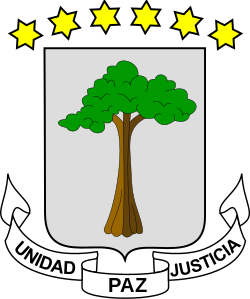| ||||||||||||||
| ||||||||||||||
| ||||||||||||||
 |
|---|
Presidential elections were held in Equatorial Guinea on 25 June 1989, the first since 1968, although incumbent Teodoro Obiang Nguema Mbasogo had his seven-year term starting in 1982 approved in a referendum in 1982. [1] He was the only candidate and was re-elected unopposed with 99% of the vote.
